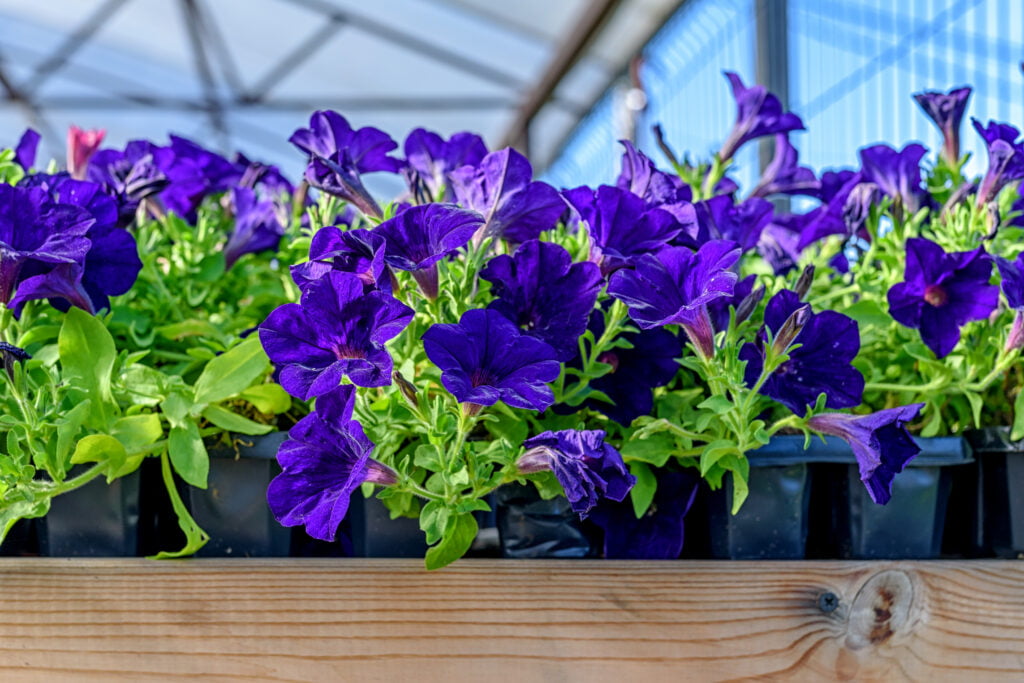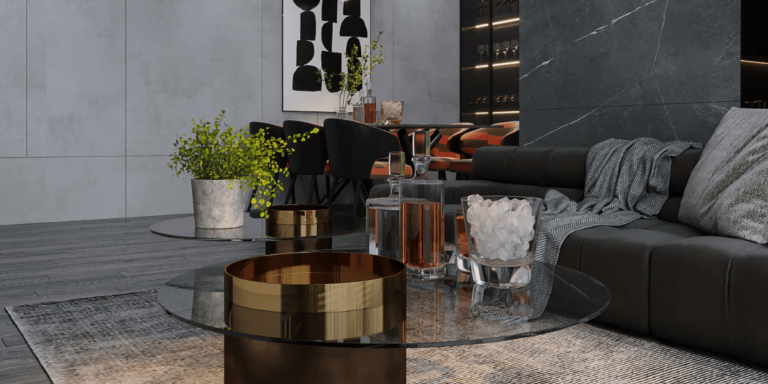Introduction
The Beauty of Ruellia, commonly known as the Mexican Petunia, is a remarkable plant that brings a combination of lush foliage and vibrant colors to any indoor setting. This detailed review aims to delve deep into the nuances of caring for this unique plant, ensuring it thrives and enhances your living space. We’ll explore various aspects, from the basics of plant care to more specific needs like light, soil, and watering. Additionally, we’ll address how to deal with challenges and ensure the plant’s health through different seasons.
Detailing key specifications of the Indoor Ruellia (Mexican Petunia):
| Specification | Details |
|---|---|
| Common Names | Indoor Ruellia, Mexican Petunia, Ruellia simplex |
| Botanical Name | Ruellia simplex |
| Family | Acanthaceae |
| Plant Type | Perennial |
| Mature Size | Typically 1-2 ft. tall, 0.5-1 ft. wide indoors |
| Sun Exposure | Bright, indirect light; can tolerate some shade |
| Soil Type | Well-draining, fertile soil |
| Soil pH | Slightly acidic to neutral (6.0 to 7.0) |
| Bloom Time | Summer, though indoor plants may bloom year-round |
| Flower Color | Purple, pink, or white depending on the variety |
| Hardiness Zones | 8-11 (USDA), more temperate as an indoor plant |
| Native Area | Mexico, Southwestern United States |
| Benefit | Adds vibrant color and tropical flair to indoor spaces; relatively easy to care for; can improve air quality |
This table serves as a concise yet comprehensive reference for anyone interested in growing and maintaining Indoor Ruellia. Each specification provides crucial information that contributes to understanding and effectively caring for this plant.
Plant Care Overview
Caring for the Indoor Ruellia is a delightful experience, marked by understanding its growth pattern and environmental preferences. This section will provide a comprehensive guide to nurturing your Mexican Petunia, ensuring it remains healthy and vibrant.
Light Requirements
Light plays a pivotal role in the growth of Indoor Ruellia. In this part, we’ll discuss the ideal lighting conditions for this plant, offering tips on how to maintain the perfect balance between light and shade to promote robust growth.
Soil Composition
The right soil is crucial for the health of your Mexican Petunia. Here, we explore the best soil mixtures and how to ensure your plant has the perfect foundation for growth, discussing the importance of drainage, nutrient content, and soil pH.
Watering Schedule
Watering is more art than science when it comes to Indoor Ruellia. This section will cover the intricacies of watering, providing guidelines on how often to water, signs of over or under-watering, and the best practices to keep your plant hydrated.
Temperature and Humidity Preferences
The Indoor Ruellia thrives in specific temperature and humidity conditions. We’ll delve into the ideal environmental settings for your plant and how to maintain them, ensuring your Ruellia flourishes in your home environment.
Fertilization Needs
Fertilizing your Indoor Ruellia can significantly boost its growth and bloom. In this chapter, we’ll discuss the types of fertilizers best suited for the plant, the frequency of fertilization, and how to apply them effectively.
Pruning Techniques
Pruning is essential for the health and aesthetics of your Mexican Petunia. This section will guide you through the process, providing tips on when and how to prune to encourage growth and maintain the plant’s shape.
Overwintering Methods
Overwintering your Indoor Ruellia can be challenging. Here, we’ll provide strategies to help your plant survive and thrive during the colder months, ensuring it comes back stronger in the spring.
Propagation Steps
Propagation is a rewarding aspect of caring for the Indoor Ruellia. This part will guide you through the process of propagating your plant, ensuring you can spread the beauty of the Mexican Petunia throughout your home or share it with friends.
Dealing with a Quickly Declining Plant
Sometimes, despite our best efforts, plants can start to decline rapidly. This section is dedicated to identifying the signs of a declining Indoor Ruellia and steps to rescue and revive it.
Types of Indoor The Beauty of Ruellia
The Ruellia genus has several species and varieties, each with unique characteristics. The most common types found indoors include:
- Ruellia simplex (Wild Petunia): Known for its vibrant purple flowers and robust growth.
- Ruellia brittoniana (Mexican Bluebell): Features slender, elongated leaves and bright blue flowers.
- Dwarf Varieties: Smaller in stature, these are perfect for indoor cultivation where space is limited.
Common Pests & Plant Diseases with Solutions
Indoor Ruellia can be susceptible to certain pests and diseases:
- Pests: Spider mites, aphids, and whiteflies are common. Use insecticidal soap or neem oil to control these pests.
- Diseases: Root rot due to overwatering is the most common issue. Ensure proper drainage and avoid overwatering. Fungal diseases can be treated with appropriate fungicides.
How to Get Indoor Ruellia to Bloom
Encouraging Indoor Ruellia to bloom involves several key factors:
- Adequate Light: Ensure the plant receives plenty of bright, indirect sunlight.
- Proper Fertilization: Use a balanced fertilizer during the growing season to provide essential nutrients.
- Correct Watering: Maintain a consistent watering schedule, allowing the soil to dry slightly between waterings.
- Pruning: Regular pruning can stimulate growth and potentially increase blooming.
Common Problems With Indoor Ruellia
Some typical issues that may arise include:
- Yellowing Leaves: Often a sign of overwatering or poor drainage.
- Leggy Growth: Usually due to insufficient light. Moving the plant to a brighter location can help.
- Leaf Drop: Can be caused by a sudden change in temperature or environment.
- No Blooms: Lack of flowers can result from inadequate light, insufficient nutrients, or incorrect watering.
By addressing these specific areas in detail, the review can provide a comprehensive guide to both novice and experienced gardeners, ensuring the successful cultivation of Indoor Ruellia.
Blooming Brilliance: Concluding Thoughts on Indoor Ruellia Care
In this final section, we’ll summarize the key points of caring for your Indoor Ruellia, emphasizing the joys and benefits of nurturing this beautiful plant.
Frequently Asked Questions
Decode the magic of gardens with our guide to Landscaping Styles Frequently Asked Questions.
- Watering frequency for Indoor Ruellia varies based on factors like light, temperature, and soil type. Generally, it’s best to water when the top inch of soil feels dry. This might mean watering once a week, but it’s important to adjust based on your specific conditions. Overwatering can lead to root rot, so ensure good drainage and avoid letting the plant sit in standing water.
- While Indoor Ruellia prefers bright, indirect light, it can tolerate lower light conditions to some extent. However, it’s important to note that less light may lead to fewer blooms and slower growth. If you notice leggy growth or a decrease in flowering, it might be a sign to move your plant to a brighter spot.
- Fertilize your Indoor Ruellia during the growing season (spring and summer) with a balanced, water-soluble fertilizer, diluted to half the recommended strength. Apply it once a month or as per the product’s instructions. Avoid fertilizing in the fall and winter when the plant’s growth naturally slows down.
- Propagation of Indoor Ruellia can be done through stem cuttings or division. For stem cuttings, cut a healthy stem just below a node, remove the lower leaves, and place it in water or moist soil until roots develop. For division, gently separate the plant at the roots during repotting, ensuring each section has a good root system, and repot into separate containers. Both methods are effective and can help you expand your collection or share with friends.
Recent Posts
- Modern Mural Ideas Transforming Walls into Artworks
- Thematic Table Decor Dressing Your Table for Special Occasions
- Festive Lighting Ideas Brightening Your Home for the Holidays
- Biodegradable Decor Materials Choosing Earth-Friendly Options
- Personalized Space Decor Making Your Home Uniquely Yours
- New Year’s Eve Decor Ringing in the New Year in Style
- Transforming Junk into Decor Upcycling at Its Best
- Second-Life Decor Objects Giving Old Items New Purpose
- Unique Decoration Crafting Standout Ideas for Your Home
- Environmentally Friendly Styling Decor with a Conscience











